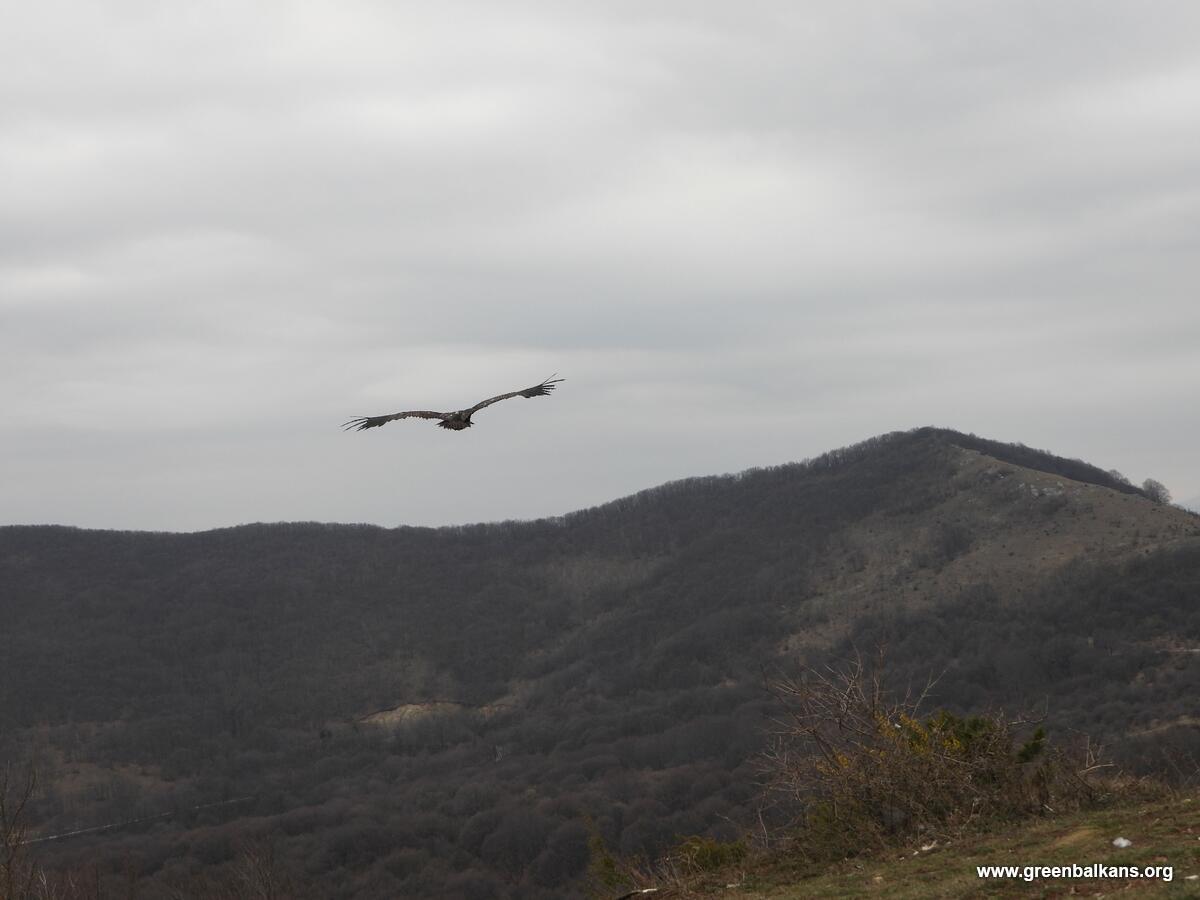
Cinereous Vultures started mating in Bulgaria again since the species has been declared extinct decades ago in the country. The pair is part of the breeding programme of the Green Balkans’ Wildlife rehabilitation and breeding centre and is supported by the Vultures Back to LIFE Project.
Cinereous Vulture breeding pair
The breeding vultures were paired more than a year ago when the male Keyo arrived in Bulgaria and became the partner of the female Cherna. After an inquiry among the Green Balkans’ supporters, the bird was named Keyo, suggested by Svilen Stamatov from the Bulgarian Animal Transport, who donated and assisted for the transportation of the bird.
Last year the pair performed excellent courtship, but they never copulated, and as a result, the female laid an unfertilised egg.
This season they initiated nest building in December and recently they started copulating, which is a significant progress.
Watch the pair courting
Reintroducing the Cinereous Vulture to Bulgaria
Let’s hope that their efforts are successful as this outcome will also contribute to the efforts of the Vultures Back To LIFE project to bring the Cinereous Vulture as a breeding species in Bulgaria. It is also likely that Cinereous Vultures will start nesting in the wild again since two of the birds released in 2019 – Balkan and VCF Know How – were observed courting by the project’s field assistants.
Special thanks go to Marleen Hugh, coordinator of the European endangered species program for the Black vulture (EBV EEP) for providing the male vulture to the Centre and for her advice for the Cinereous Vulture breeding methodology. Also thanks to the zoo Ouwehands Dierenpark zoo in the Netherlands for donating the vulture and helping form a suitable breeding pair.
Source: Green Balkans
Vultures Back To LIFE

Led by the wildlife conservation charity Green Balkans, with activities also implemented by the Fund for Wild Flora and Fauna, and bringing together partners from Bulgaria, Spain and Germany, Vultures Back to LIFE aims to reintroduce the cinereous or Eurasian black vulture to Bulgaria. The team will transfer and release around 60 birds, some from captive-breeding, but mostly coming from wildlife rehabilitation centers in Extremadura (Spain) into the wild in Bulgaria as well as creating supplementary feeding stations and improving populations of wild herbivores, improving the nesting conditions and creating artificial nest sites and tackling some of the major threats to vultures in the country such as insulating electricity pylons and illegal use of poison in the nature.




